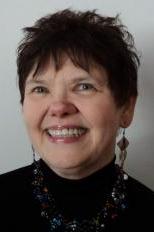






Today would be different, I’d tell myself. I wouldn’t pick up that glass of wine with dinner. I’d get through the evening without drinking. I’d do it the way I’d managed to quit smoking, by convincing myself to get through just one day and one evening, and then it would get easier, and my life would change.
And every evening, or afternoon, or sometimes even later that same morning, I’d pour myself a glass of wine and drink it down quickly so that I could bear to live with the person I’d become.
One night, I dreamed of a goat clinging to my back, its legs tight around my chest, crippling me, making it agony to move, look upward, or even breathe. You didn’t have to be a devotee of Freud to interpret that. It was time to take that last sip of Chablis and throw the bottle in the trash. …
The spring I quit drinking was like waking up from a long nap. I felt disoriented, blinking in the sudden sunlight. A sober life still didn’t feel natural to me, but I was beginning to see that one day it would.
- Jill Muehrcke, Waking Up Happy excerpt
 Jill MuehrckeJill Muehrcke, now 68, has been sober since 1984. She tells the story of her recovery from alcoholism in her 2012 book, Waking Up Happy: A Handbook of Change with Memoirs of Recovery and Hope. She answered a few questions in March about the process of writing and editing the book and the impact she hopes it will have on readers’ lives.
Jill MuehrckeJill Muehrcke, now 68, has been sober since 1984. She tells the story of her recovery from alcoholism in her 2012 book, Waking Up Happy: A Handbook of Change with Memoirs of Recovery and Hope. She answered a few questions in March about the process of writing and editing the book and the impact she hopes it will have on readers’ lives.
Muehrcke has been collecting recovery exercises for “as long as I can remember,” she said. Five years ago she felt a need to share them with others, and the project came together two years later when Muehrcke met several people from Connections Counseling Center through her granddaughter, a recovered heroin addict and client there.
Counselors and patients from Connections contributed their memoirs to Waking Up Happy, chronicling various addictions and recoveries with the intent to help people with substance abuse histories, addictions, or other behaviors they want to change in their lives.
Muehrcke composed the book with assistance from the Recovery Foundation, a Dane County-based organization that supports substance abuse recovery. Half the proceeds from Waking Up Happy go toward that foundation.
A Madison resident for 30 years, Muehrcke serves as the editor of Nonprofit World magazine. She also coauthored the book Map Use.
 MC: Could you explain the title of the book, Waking Up Happy?
MC: Could you explain the title of the book, Waking Up Happy?
JM: Through reading lots of memoirs throughout my life and putting together exercises that were helpful for me, I learned through other people’s examples. That’s [how] I have been able to change in a lot of ways throughout my life to finally, today, I’m living the life I’ve always dreamed of. And it’s been a long, slow ladder to climb. … It is almost impossible to change, to make a sudden, huge change. You have to think of it in little bites, do little bits of it at a time. And then all of a sudden, you realize, “I’m waking up happy.”
MC: The book contains seven memoirs, including stories of recovery by you, your daughter, and your granddaughter. Why are those personal narratives so important?
JM: That’s the way people really learn best, through stories. That’s what people love too; they love stories. They don’t like to be told what to do. … They would prefer to hear a story and then think, “Oh, I can relate to that, and maybe I can adapt what that person did to my life.”
MC: What’s the importance of that three-generation link?
JM: That’s something that took me a long time to sort out. I could see how my problems were sort of cascading down the generations, and I could see how my parents’ problems cascaded down to me.
MC: What sets this book apart from other addiction workbooks?
JM: [For] the people who are trying to change their life by quitting a substance of some sort, there are a lot of recovery books that focus on how awful it is to be addicted. [Those books] go through all these horrible things, and I just can’t stand to read those. … I left all that out, and I started where most addiction books, most recovery books end, with that moment of epiphany and saying, “OK, now I’m going to change.”
|
|
|
Welcome to the Madison Commons, a website designed to provide news and information about all of Madison's neighborhoods and a crossroads for the discussion of community issues. The name comes from the idea of a village commons, a place for news, talk, debate, and some entertainment, too, that's open to everyone.
All rights reserved. Read more about the Madison Commons and its partners.

